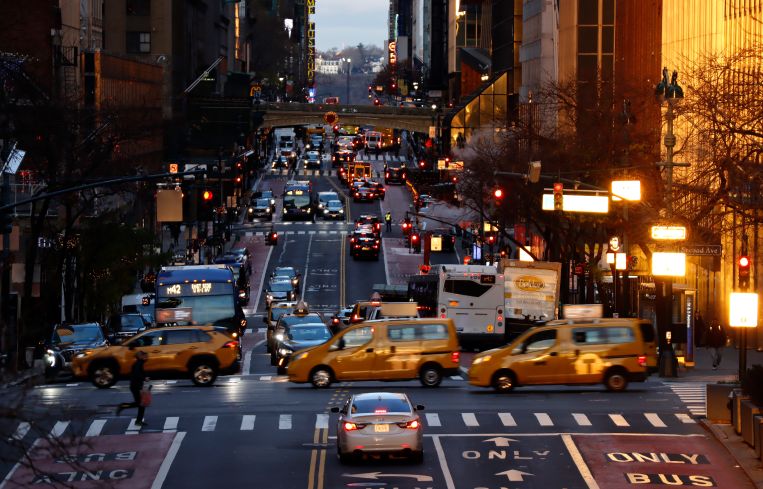Manhattan Congestion Pricing Clears Federal Hurdle
By Mark Hallum May 5, 2023 5:43 pm
reprints
The Metropolitan Transportation Authority crossed all its T’s on the environmental assessment it performed for the congestion pricing plan for Manhattan — at least as far as the federal government is concerned.
The Federal Highway Administration (FHWA) issued a letter of sufficiency regarding the assessment, essentially stating that no further information was needed for the agency’s review of the proposal and giving the green light for the city to charge motorists traveling into and through Manhattan’s central business district.
The FHWA’s findings will be up for public review for 30 days before the environmental impact is fully completed.
“Congestion pricing is a generational opportunity to make it easier for people to get around in, and get to, the central business district by reducing traffic and funding improvements to the public transit system,” MTA spokesperson John McCarthy said in a statement. “To do it right, environmental equity has been an integral component. We are grateful that the FHWA has acknowledged the project sponsors’ efforts to date and has found the document has met the standards for legal sufficiency.”
The current iteration of congestion pricing, proposed by then-Gov. Andrew Cuomo during the transit crisis in 2017, could impose a toll on drivers below 60th Street ranging between $9 and $23 per day — figures that were further solidified over the fall of 2022.
Known more formally as the Central Business District Tolling Program, the plan is integral to funding the MTA’s $55 billion capital plan adopted in early 2020. About $15 billion of the capital plan is expected to come through congestion pricing.
Congestion pricing was approved by the state legislature in 2019 and the proposal has been guided strongly by real estate interests, which form the backbone of an advisory board approved by the MTA in July 2022.
“This letter signals that New York will soon be able to move forward with a proven and effective program to reduce traffic congestion, improve air quality and generate the funding needed to upgrade and expand the public transportation system that millions of riders across the region rely on every day,” the Congestion Pricing Now Coalition said in a statement.
Mark Hallum can be reached at mhallum@commercialobserver.com.



